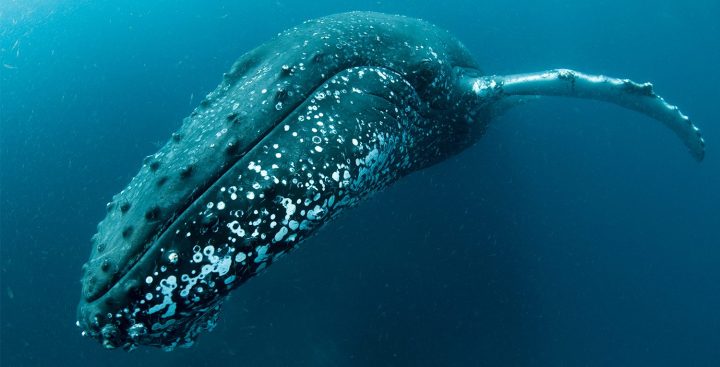HUMAN RIGHTS DAY OP-ED
NGOs can’t tell stories as agents for change while fighting for a shrinking funding pool

Despite the important role that NGOs play in our country’s social justice agenda, their achievements do not get enough attention because they do not know how to tell their stories while they fight for a shrinking funding pool.
There are about 200,000 registered NGOs in South Africa, playing critical roles as agents for change. Human Rights Day shines a light on these organisations, which have historically played an important part in the South African human rights context, from being the drivers for political change in the 1980s and 1990s to protecting and promoting the human rights and social justice agenda into the 2000s.
In today’s environment, where rampant corruption has rendered the state ineffective, and a global pandemic has further crippled our floundering economy, it is the NGO sector that has consistently stepped in to fill the gaps.
Despite the important work being carried out by NGOs, there is very little attention given to their successes and dedication to transformation and growth in our country. One of the big reasons for this is a skills gap in communication and marketing within the sector. Simply put: NGOs do not know how to tell their stories while they fight for a shrinking pool of funding that makes competition in the sector intense.
Amplifying their voices
SA’s NGOs have the capacity to support SA’s growth, but they do not have an effective voice. If they could improve their ability to lobby, tell their stories, build their profiles and collaborate, they could uplift the sector and increase their influence to attract both local and global funding.
Typically NGOs are founded on the passion or skill of the founder, but the critical skill of communication is lacking in the sector. Adding to the problem is the fact that no funding is allocated to communication.
F/NE for Good (FFG) helps to upskill NGOs in this area to build strong brands for better fundraising. Many of the NGOs supported by FFG have been leading the way with innovative interventions in healthcare and environmental conservation, yet they have not been able to tell their stories in a compelling way or to reach the right people.
An example of a success story is WILDOCEANS, the national marine conservation programme of the WILDTRUST, an NGO that works to bring “humankind and nature back into balance”. The F/NE team was crucial in formulating and implementing its 2018 Only This Much ocean protection campaign. The campaign focused on the premise that Only This Much (0.4% marine protection at the time) was not enough. This campaign built significant support for marine protected areas and spread awareness about the threats facing our oceans, targeting the public and government decision makers.
With the help of FFG, the campaign reached 11.5 million people in 12 months and ultimately, together with support from several other organisations as well as public pressure, South Africa expanded its 0.4% marine protection to 5%.
This is the power of a good story.
Making dreams come true
Another example is the Reach For A Dream Foundation, which won the inaugural South African CSI Legacy Award for South Africa’s best NGO this year. This organisation grants dreams for children with life-threatening illnesses. When the NGO approached FFG for support, doctor referrals for dream fulfilment were low.
After a strategic evaluation, FFG recommended that Reach For A Dream become more visible in hospitals. It recommended that “dream rooms” be built – beautiful spaces in public hospitals where children can be children and meet their developmental milestones. FFG worked with Reach For A Dream to build 32 dream rooms in public sector paediatric wards across South Africa.
The NGO faced another crisis when the Covid-19 pandemic began. It could not fulfil in-person dreams during lockdown. Once more FFG supported Reach For A Dream by using virtual reality to deliver dream experiences and give children hope for the fulfilment of their dreams post-lockdown. This initiative and flexibility built credibility with doctors, who continued to refer their patients to the organisation. It was also able to attract funding for its initiatives due to its brand positioning.
FFG has identified that there are hundreds of thousands of NGOs that need similar strategic support. However, the current model for FFG is on a one-on-one basis.
Unlocking value
The next step for FFG is to unlock value at scale to deliver the growth it has achieved with individual NGOs on a larger scale. FFG is using technology to do this via a platform that all NGOs will be able to access to more effectively tell their own unique stories and in this way raise their profiles to secure funding. FFG is digitising its marketing and communication strategy process to allow broader dissemination of its blueprint to the NGO sector.
The FFG methodology is based on data, insights and a review of best practices locally and globally. These insights are used to craft effective strategies. FFG believes that by strengthening the voices of more NGOs, the sector can be highlighted as a credible and trusted source that is filling crucial gaps in our country, and subsequently attract more funding to support its work. DM/MC
Mandi Fine is the founder and CEO of F/NE Group, which provides strategic insights to large local and global brands. She also started F/NE for Good, a non-profit organisation which provides communication strategy support and upskills NGOs. It is a collective of brand and strategic communication experts with more than 25 years of experience in building the world’s top brands supporting South Africa’s leading NGOs to elevate their profiles.
On 19 March 2022, FFG launched its platform to NGOs present at the Human Rights Festival at Constitution Hill in Johannesburg. The festival runs until 21 March.



















Comments - Please login in order to comment.